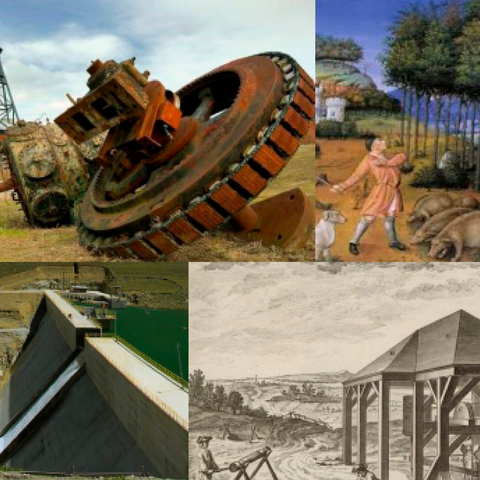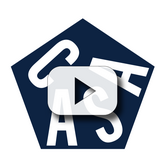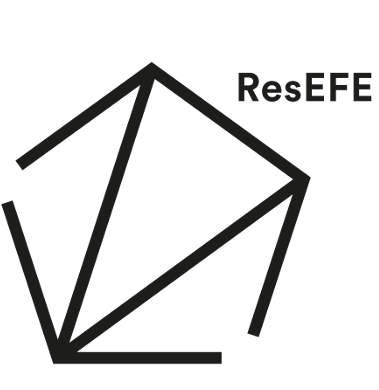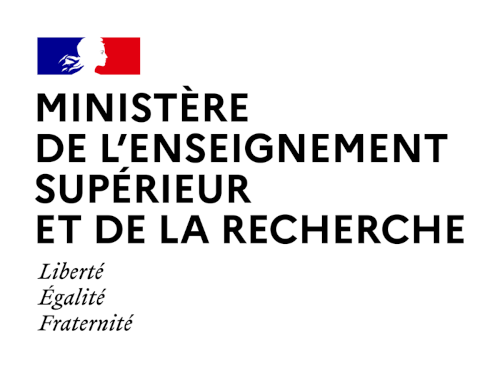Presentation
This workshop “History and Social Sciences: Debates in economic history”, follows the organisation of its previous editions in 2016 and 2018. It is aimed at PhD students and young researchers and intends to create a framework for discussing and deepening some of the principal approaches in economic history. Clearly inter-disciplinary in focus, it also intends to address the diversity of the ongoing academic debates —and to reflect the depth of renewal in this domain—about the relations between History and Social Sciences.
In line with these objectives, the workshop encourages active the participation of the selected candidates so as to produce a collective scientific and methodological reflection on how History and Social Sciences relate to each other, and on research practices in different geographical contexts.
To that end, the selected candidates will be invited to present and discuss their research projects within the frame of the workshop’s historiographical sessions, conducted by experienced specialists in each research fields.
This willingness to establish a dialogue between economic history, history and social sciences stems from the observation that each discipline -or area of specialization- perceives the others according to stereotypes in which none of them finally recognize themselves. The counterpoint between "historical economics" and "narrative history" does not explain these differences in perception, since the concepts and methods have circulated widely among the different branches of economic history. The renewal mentioned has affected all its fields, both those that use mathematical or axiomatic tools and those whose approaches are on the contrary more qualitative and narrative. For this reason the organisers of the workshop seek to cast this dialogue over at least two historical periods.
Content
In its third edition, the workshop’s overall objectives will be oriented towards the question of “Resources in a historical perspective. Approaches and debates”.
Historical studies on human interactions with the natural world and with what a society perceives and constructs as “resources” have become an especially dynamic and innovating field of economical and social history. It is indeed composed of a diversity of currents and approaches that lie within one of the broadest interdisciplinary arcs of the social sciences. Moreover, the circulation between these approaches and currents often makes it difficult to to distinguish their boundaries. Studies on agrarian transformations or energy transitions for instance, overlap with works on environmental history. By placing the history of Humanity in the context of Nature changing by itself and through human actions, the latter constantly questions what a culture defines as Nature. Environmental history thus encounters reflections on the anthropocene, while the political history of the emergence of environmental concerns on the international and national scene feeds on the former as much as on the latter. The same is true of work aimed at estimating the impact of natural resources on long-term growth or debates on the notion of natural capital. This diversity includes both the financial and institutional dimensions, as well as a History of technology that integrates the processes of intelligibility and the materiality of practices. The experts who will participate in the workshop will attempt to place their own experience in a common reflection on the political economy of resources.
Organisation of the workshop
These themes will be organized into four sets of workshops and seminars -each set focussing on a historiographic approach-, led by recognized experts. These workshops will be followed by sessions where selected candidates will present and discuss their current research. A lecture or conference will address present issues and a final round table will discuss quantitative and qualitative methods applied to the themes addressed this year.
Organizational and scientific committee
Juan Carmona
Universidad Carlos III de Madrid
Marta Craveri
Fondation Maison des Sciences de l’Homme, Paris
Juan Flores Zendejas
Université de Genève
Sandra Kuntz
El Colegio de México, A.C.
Pablo Martin-Aceña
Universidad de Alcalá
Zacarías Moutoukias
Université Paris Diderot/ Université de Paris
Guest speakers
Mathieu Arnoux
UMR 8236 LIED - Université de Paris
Jawad Daheur
CRH-GRHEN/CERCEC, EHESS
Alexandre Fernandez
Université de Bordeaux Montaigne-CEMMC
Elisa Grandi
Laboratoire Interdisciplinaire des Énergies de Demain (LIED)
Université de Paris
Dácil Juif
Universidad Carlos III de Madrid
Instituto Figuerola de Historia y Ciencias Sociales
Arnaud Passalacqua
Lab'URBA-Université Gustave Eiffel (conférence magistrale)
Conditions
The organisation will provide the accommodation for 6 nights (from 24 october to 30 october) for the applicants who request it and do not reside in Madrid, as well as lunches (5 days).
Transportation costs and dinners will be at the expense of the participants.
No registration fee.
Languages used in the workshop: Spanish, French, English. Students able to express themselves only in English must be able to understand Spanish or French.
Applicant profile
This call for applicants is aimed chiefly at PhD students, recent post-doctoral fellows (defence in the previous year) and young researchers in historical economics and social history. However, we also encourage applications from students of other specialised areas (History, Anthropology or Sociology) who wish to broaden their experience through acquaintance with the areas addressed in this workshop.
The workshop also concerns 2nd year Master students whose research project is well advanced.
Selection criteria
The 20 participants will be selected on the basis of their academic record, their profile and their knowledge of languages. Priority will be given to the applicants whose research studies fall within the main topics of the workshop. This is why they will be asked to submit a cover letter explaining the reasons for their application, and sketching the content of the paper they are planning to deliver at the workshop (max. 600 words).
The applicants will be advised of the results of the selection, and the selected ones will be informed of the procedures. After the workshop, these selected candidates will receive a certificate of attendance.
Candidates must register using the electronic form until 16 September (midnight, Madrid time).
On the days following the deadline, candidates will be informed of the result of the selection process. Successful candidates will then be informed of the procedures to follow. At the end of the Thematic School, the selected candidates will receive a certificate of attendance.















